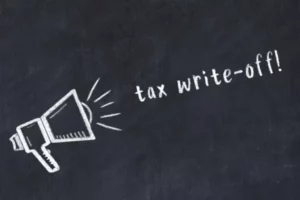Taxpayers need so many forms to fill out and send to the IRS, contractors, businesses that it can create a lot of confusion. Most small businesses claim that filing taxes is one of their biggest concerns when the end of a tax year starts looming over the horizon.
Filing taxes is a complicated process, but it’s possible to figure everything out. Keep reading our article that we prepared to solve at least one mystery – what is form 1120. Learn who needs to submit the form, who should be the recipient, etc.
What is Form 1120
It’s a U.S. Corporation Income Tax Return form used to report profit, gains, losses, any deductions, or credits. All this information is used to determine the tax liability of a business. C corporations and LLCs must fill out and submit this form to the IRS.
Overall, whether a domestic corporation has taxable income or not, it must file its income tax return. The exception is if the corporation decides to file as a different type of business during a specific tax year.
Form 1120 Types
1120 has several types of forms. A business might need to file one of these forms:
- 1120-C. Cooperatives fill out 1120-C to report their taxable income.
- 1120-H. Residential real estate or condominium managements might need to fill out 1120-H.
- 1120-L. Life insurance companies must file the 1120-L variant.
- 1120-S. S corporations use this form to report their taxable income.
Your best option is to go to the IRS official website and find the instructions to what specific form your business has to fill out.
Who has to File 1120?
As mentioned, even if domestic corporations don’t have taxable income to pay as taxes, they are required to file 1120. But there are several exceptions (more on that in the next section). Even corporations that are bankrupt have to submit the 1120 statement.
If you find yourself in one of the following examples, you have to submit 1120:
- A business chooses to be taxed as a corporation. Along with 1120, corporations should attach a copy of filled Form 8832.
- All corporations that have an interest in a Financial Asset Securitization Investment Trust (FASIT) must fill out the form.
- LLCs have to file 1120 only if they have elected to be taxed as a corporation during a specific tax year. If LLC is a partnership, it submits 1065. If it’s a single-member LLC, it’s possible for an owner to report their personal tax return.
- Farming corporations. If a company manufactures products or offers farming services, it must submit 1120.
- Foreign-owned domestic disregarded organizations that have 100% of a domestic DE (disregarded entity) also file the form. In that case, the corporation is separate from the owner, and the owner can’t file a personal tax return. To submit 1120, DE owners have to attach Form 5472.
Bigger corporations with higher incomes and losses also have to fill out additional forms and schedules that come with a form. To find out whether you have to fill out additional forms, check the IRS instructions.
Who shouldn’t File 1120?
Some organizations are excluded from the list of taxpayers who must file 1120:
- veterans’ organizations;
- political organizations;
- social clubs;
- trade associations;
- charities;
- social welfare associations;
- labor associations.
If you wish to learn more about the full list of exceptions, check the IRS official website.
What Do You Need to File in 1120 Form?
Whether you are doing taxes on your own or hiring an accountant, you still need to prepare some documents and information. Here is the list of everything a taxpayer needs to file 1120:
- EIN (Employer Identification Number);
- date of creating a corporation;
- total assets owned by a corporation;
- total income;
- all gross receipts;
- COGS (costs of goods sold);
- dividends, interest, royalties earned during a tax year;
- capital gains;
- all tax deductions according to a business type or industry;
- business tax credits a corporation is going to apply for.
By hiring an accountant, an organization can reduce the pressure and file taxes properly. Instead, you can use such resources as time differently.
How to File 1120
The simplest and most convenient way is to fill and file the form online. Sign in to your IRS account or create one to fill out and submit the form. It’s easy, fast, and companies can be 100% positive that the IRS received their tax income return forms.
If you prefer submitting the form by mail, use private delivery services approved by the IRS and keep that document you get in return when sending the letter. It’s proof of the date when you sent the form.
When to Fill and Submit 1120
Corporations have to submit the income tax return form by the 15th day of the 4th month after the end of a tax year. For 2021, it’s April 18, 2022. If the corporation is newly created, it still has to follow the deadline even if its tax year was short.
If a corporation’s fiscal tax year ends on June 30, it must file the form by the 15th day of the 3d month after the end of its tax year. To make things easier, businesses can ask for the help of bookkeeping and accounting services like Bench or QuickBooks service.


















